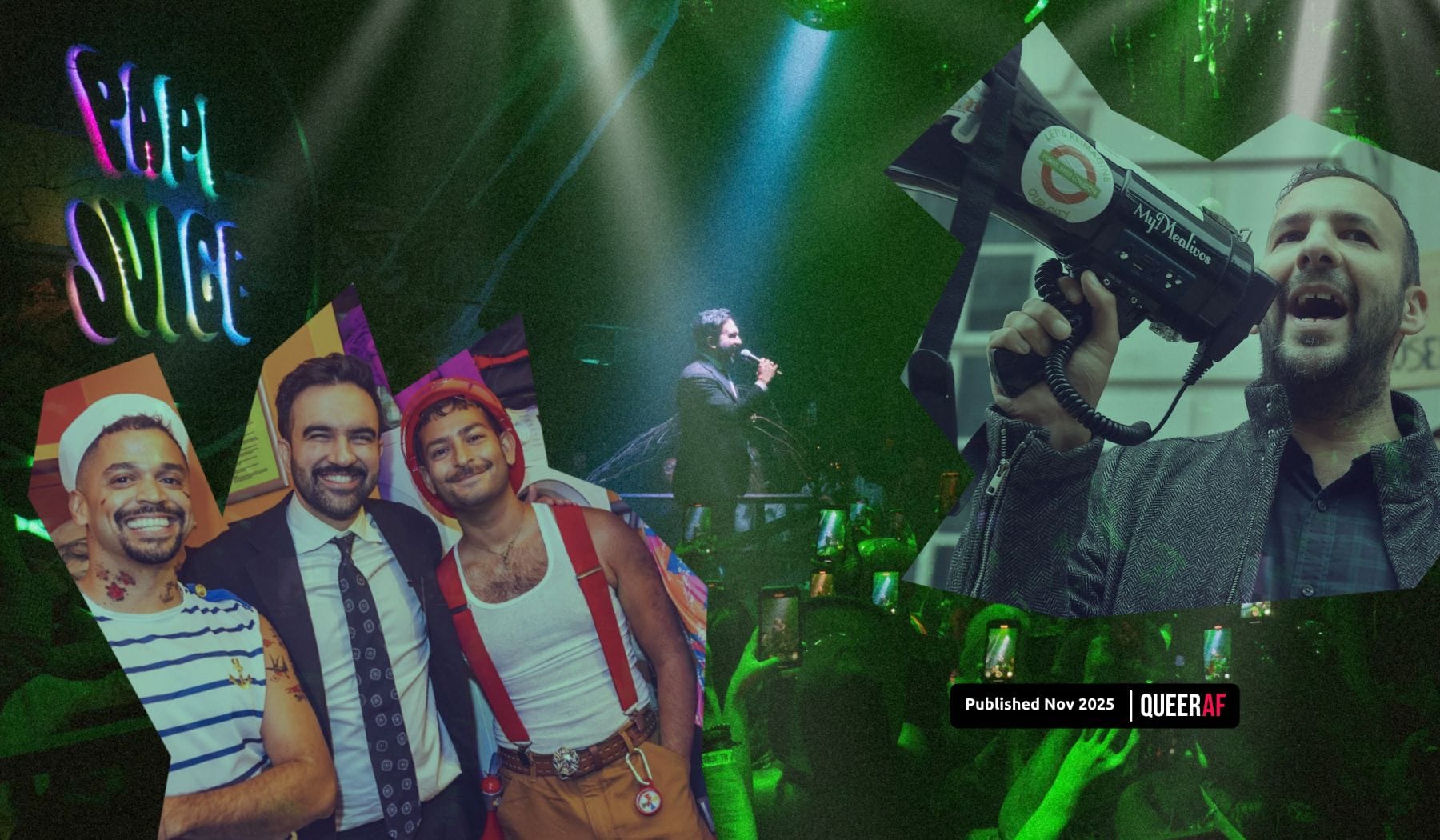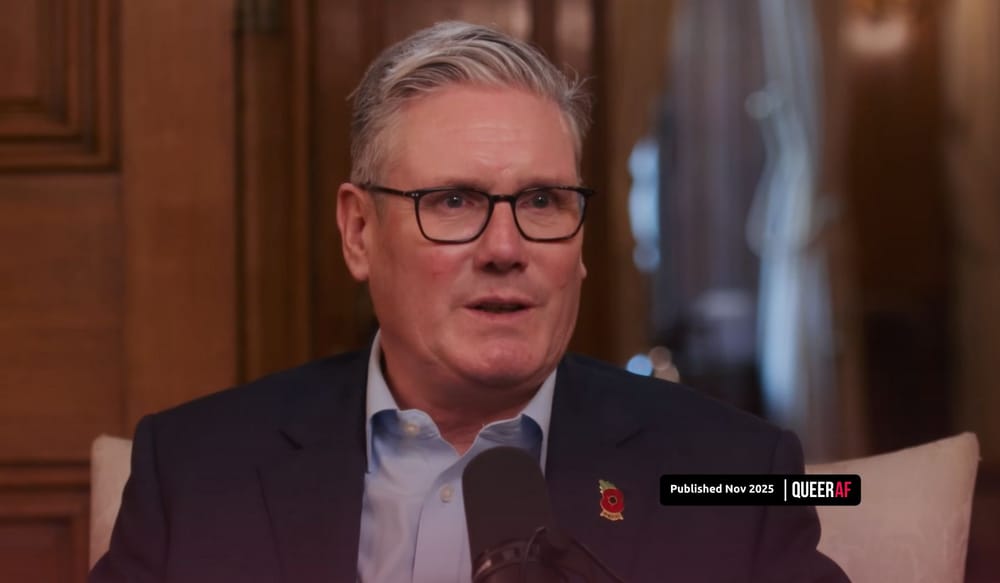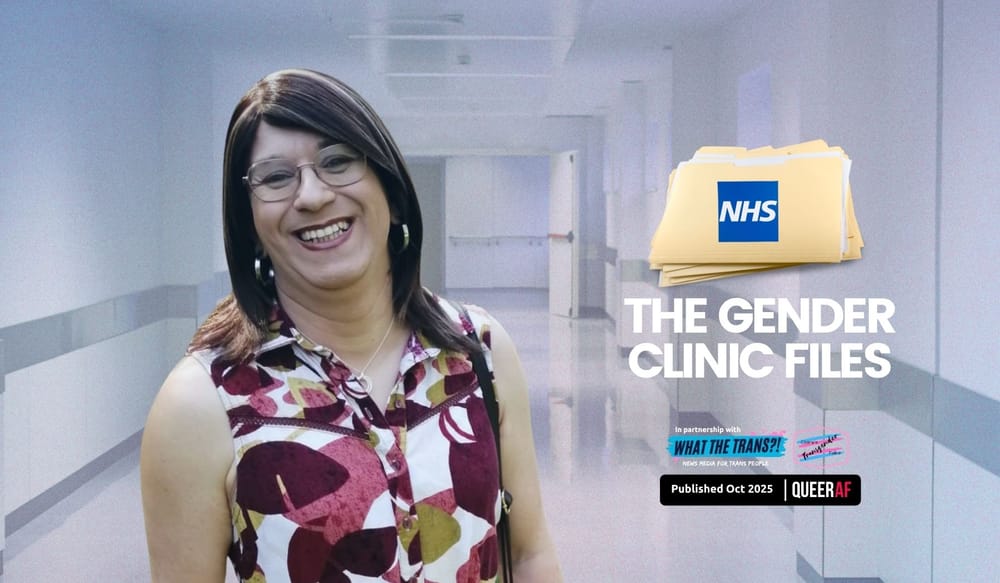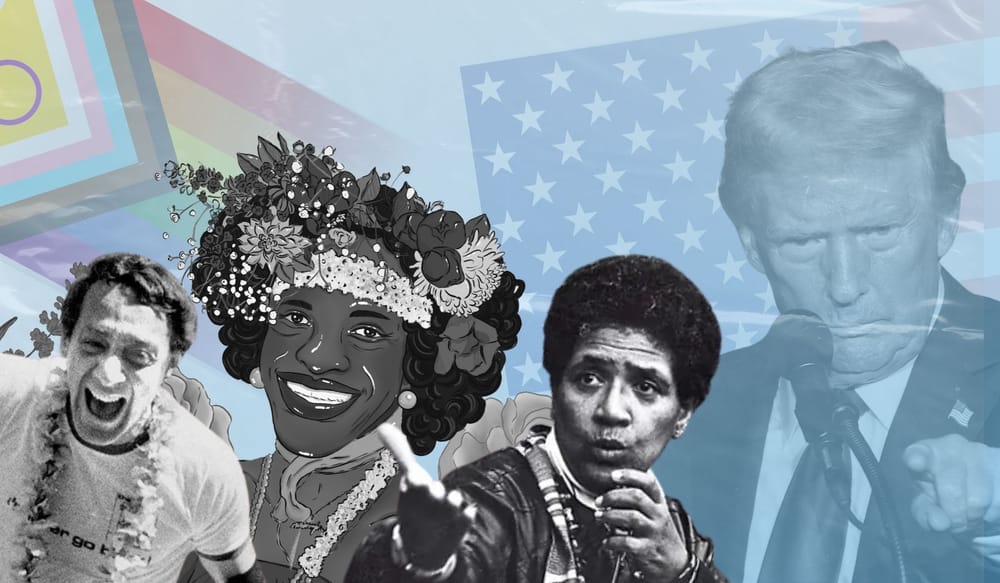TL;DR: Opinion - As Harvey Milk famously said, “you gotta give 'em hope”, a message politicians in both the US and UK have been adopting to surging success in polls and elections. Evidence shows that anti-trans narratives are failing to translate into votes for populist politicians.
In what is undoubtedly a significant moment in politics, relative unknown Zohran Mamdani, who spent Halloween campaigning at gay bars, just became the first Muslim Mayor of New York following a campaign where he stood squarely by Trans+ rights.
Alongside a surge in polling for the Green Party amid the popularity of new leader Zak Polanski, it begs the question: are we finally learning the lessons from Brexit, moving away from fear and seeing a wider pivot towards hopeful and optimistic messaging in politics?
Mamdani being pictured alongside a sexy sailor and fireman and giving a campaign speech at 1am at Papi Juice, just days before being elected as Mayor of one of the most iconic cities in the world, is just one of the striking images from a campaign that has sent shockwaves through the US amid mid-term elections.
The speech, which promised to honour figures like Sylvia Ryviera by building a city where Trans+ people can be "cherished" came after weeks of Mamdani providing consistent, progressive viewpoints on LGBTQIA+ lives. He pledged to make New York a safe haven for the community, with budget promises of $57M for gender affirming care.
It is striking politics indeed, in a country mired by growing authoritarianism, a crusade of anti-LGBTQIA+ policies from Republicans and a debate within the Democrats on whether to cede ground on queer rights and become 'more moderate' to respond to Trump.
But Mamdani is not an anomaly. All over the US, campaigns run with massive spending on anti-trans policies and messaging didn't cut through this election season, from Virginia to Philadelphia, Pennsylvania to California.
Candidates like Mamdani were able to be so vocally pro-LGBTQIA+ rights, because their core messaging - largely on the economy - cut through. He spoke of corporate tax rises, free public transport, and critically, making housing affordable. It's a subject that resonates no matter where you are, but is a particular pinch point in cities like New York.
It represents a fight that is going on within the Democrats: whether housing and the economy, 'bread and butter' politics, is better to focus on than the risk to democracy that Trump presents.
And this shift isn’t just siloed off in the US. The Green Party of England and Wales is making previously unheard of gains under new leader Zak Polanski’s similar set of priorities.
He is resonating, like Madani has, for his respectful approach to engaging in conversation with pundits and opponents who fling divisive rhetoric. His calm messaging is cutting through, and is providing compassionate answers to some of the biggest issues people are facing: housing, immigration and poverty.
Notably, Trans+ people are not on that list - nor have they ever been. At the last UK election, a mere 1% of people said they would decide on who to vote for because of a party's policy on the deeply marginalised Trans+ community.
Nonetheless, Polanski has been able to take the media obsession with dog-whistle questions about this subject, and answer in a way that respects the community - while returning to the topics that actually matter to voters.
Polanski has got a name for being a 'left-wing' populist for his approach, with many pundits likening him to Farage. It’s a poor comparison. Farage has been knocking around in British politics for decades, and though he’s never polled as well as he is now, he has arguably been very influential in shaping the UK for the moment he now sees himself in. But Farage is a populist because he deals in fear, distraction and division.
Polanski is very different - he deals in hope, an unusual currency for a ‘populist’, perhaps he’s better described as a pragmatist. And unlike Starmer, he has a clear vision and is able to articulate it. The relative newcomer has built on his party's steady increase and driven it forward with the one thing he does have in common with Farage: a media and comms strategy for a new age of politics.
Of course, the UK has been here before. There was a looming shake-up of the two-party system in the 1970s, with a surge for the Liberals, the SNP and the racist National Front. However, Thatcher quickly recaptured the system and halted this shift. So how can the LGBTQIA+ community seize on this moment?
The first openly gay politician in the US, Harvey Milk, famously said, 'You gotta give 'em hope'. The speech, given at San Francisco Pride, urged the LGBTQIA+ community to give people the hope they would need to become politically active and counter the despair that existed in the world of the 1970s.
Well Harvey, maybe we're finally starting to get some. The task now for progressive voices in politics, regardless of the party they belong to, is to translate this moment into action. If they do, this could be a pivotal moment for the UK. If it is squandered, it could be another 50 years before we get a moment like it again.

To beat misinformation we need a well resourced queer led newsroom that can cut through the noise and get to the facts.
Our publisher is small, but mighty, and that's because of some key principles in the way we produce news for you:
- This newsletter always has been, and always will be, free of adverts. That keeps us focused on what counts, not what drives clicks
- Readers and members drive our news agenda, because that's what our community deserves: news told both by and for us
- Investing in a new generation of queer journalists, and packing the media full of us, is the best way to address the issue in the sector. Meanwhile, we'll model the change we want to see and prove it's possible to do justice to our community's stories
Journalism is an expensive craft. It takes all week to put together this newsletter, so you can catch up on the queer world in five minutes. And we do that alongside mentoring creatives and lobbying the media sector.
If you believe in our unique model and the change we're bringing to the queer news sector, please upgrade today if you can - and help us continue to grow.
Help us change the media, so we can change the country.











